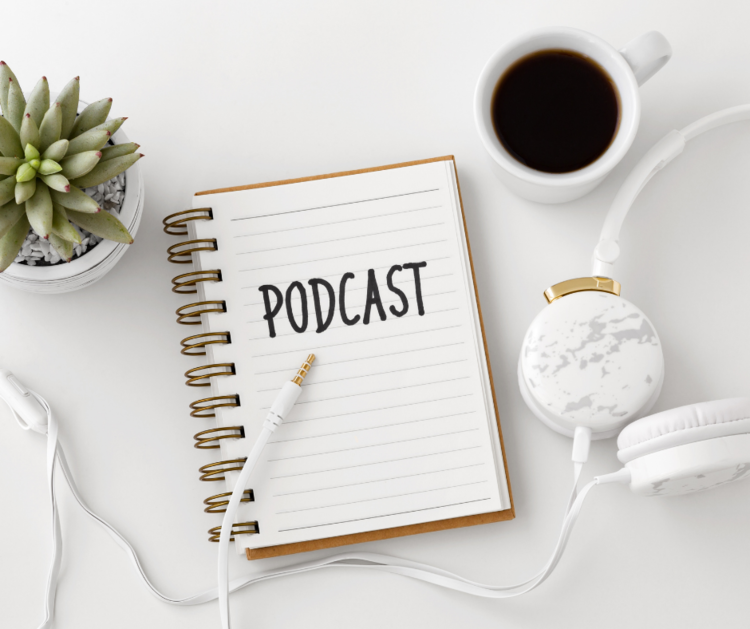
The Benefits of Food Freedom: Discover Life with Intuitive Eating
Imagine a life where food is no longer a source of stress or guilt—where you trust your body, enjoy every meal, and feel confident in your choices. With intuitive eating, this is your reality. Discover the powerful benefits of food freedom and how it can lead to lasting health and happiness. Ready to embrace this transformative approach? Join my Intuitive Eating Course and start your journey today.

How to Rebuild Trust with Your Body Through Intuitive Eating: A Guide to Embracing Body Wisdom and Food Freedom
Rebuilding trust with your body can feel overwhelming, but with intuitive eating, you can reconnect with your body’s wisdom and embrace food freedom. Learn how to honor your hunger, make peace with food, and challenge the diet mentality to create a healthier, more compassionate relationship with yourself. Ready to deepen your journey? Our Intuitive Eating Course offers the support you need to fully embrace body trust and true wellness.

Overcoming Food Guilt: 5 Steps to Embrace Food Freedom and Enjoy Eating Again
Tired of feeling guilty after every meal? It’s time to break the cycle of food guilt and embrace food freedom. In this post, we’ll guide you through five powerful steps to help you challenge diet culture, enjoy eating without shame, and build a healthier relationship with food. Ready to take the next step? Our Intuitive Eating Course is here to support you on your journey to lasting food freedom.

What Does a Healthy Relationship with Food Look Like? - A Guide to Achieving Balance and Peace with Eating
Ready to redefine your relationship with food? Discover the key elements of a healthy, balanced approach to eating that nourishes both your body and mind. From embracing all foods without guilt to practicing self-compassion, learn how to cultivate a more peaceful and joyful connection with food. Explore our Course Library for deeper guidance and take the next step in your wellness journey.

Balancing Nutrition and Mental Health: Tips for a Holistic Approach to Well-Being
Unlock the secrets to balancing nutrition and mental health with our comprehensive guide. From embracing nutrient-dense foods to practicing mindful eating, discover actionable tips to support both your body and mind. Ready to take your wellness journey further? Explore our Intuitive Eating Course for in-depth guidance on creating a diet that fosters holistic well-being and a healthier relationship with food.

How to Practice Mindful Eating for Holistic Wellness: Benefits and Tips for a Balanced Life
Transform your approach to food with mindful eating! Our guide explores practical tips for savoring each meal, tuning into your body’s hunger cues, and creating a balanced relationship with eating. Dive into the benefits of mindful eating and learn how it can enhance your overall well-being. For a deeper dive into intuitive eating and personalized support, check out our Intuitive Eating Course and start your journey toward holistic wellness today!

The Mind-Body Connection: How Mental Health Affects Physical Well-Being and What You Can Do About It
Did you know that your mental health can significantly impact your physical well-being? From chronic stress to anxiety and depression, the state of your mind influences how your body feels and functions. Discover how to nurture your mind-body connection with practical tips and holistic strategies for a healthier, more balanced life. Ready to dive deeper? Explore our Course Library for expert guidance on achieving comprehensive wellness.

Why Restricting Food Makes Emotional Eating Worse: How to Break the Cycle and Heal
Are you stuck in the cycle of emotional eating and restrictive dieting? It’s time to break free. Discover why restricting food can make emotional eating worse and learn compassionate, effective strategies to address the real issues behind your cravings. Embrace a healthier, more balanced relationship with food and emotions. Ready to dive deeper? Our Emotional Eating course offers the support and tools you need for lasting change.

How to Differentiate Between Physical and Emotional Hunger: Tips for a Healthier Relationship with Food
Is it true hunger or something more emotional? Understanding the difference between physical and emotional hunger is key to making mindful choices about when and why you eat. Learn how to recognize your body's cues and take control of your relationship with food. Ready to dive deeper? Our Emotional Eating course offers compassionate guidance and practical tools to help you navigate emotional eating and embrace lasting change.

Understanding and Managing Emotional Eating: Triggers, Strategies, and Support
Emotional eating is more than just a habit—it’s a response to our deepest feelings. Understanding what triggers emotional eating and learning how to manage it can transform your relationship with food and your emotions. Ready to take control? Our Emotional Eating Course offers the tools and insights you need to break the cycle with compassion and confidence.

Navigating Food-Related Anxiety During the Festive Season: Tips for a Stress-Free Christmas and New Year’s
Feeling anxious about food during the festive period? You’re not alone. In this post, we share practical tips to help you navigate food-related anxiety and social pressures during Christmas and New Year’s. From setting boundaries to embracing mindful eating, learn how to enjoy the season without stress. Ready to make peace with food? Explore our Intuitive Eating Course for the support you need.

5 Tips to Enjoy Holiday Meals Without Guilt: A Guide to Stress-Free Festive Eating
Worried about navigating festive meals without the usual guilt? This post is your guide to enjoying Christmas and New Year’s feasts with confidence and joy. Discover five simple tips to help you savour every bite, embrace mindful eating, and let go of food-related stress. Ready to make this festive period guilt-free? Explore our Intuitive Eating Course for lasting support in building a healthy relationship with food.

Intuitive Eating vs. Dieting: Why Intuitive Eating is Healthier for Long-Term Wellness
Curious about the difference between intuitive eating and traditional dieting? Our latest post explores why intuitive eating is the healthier choice for long-term well-being. Learn about the detrimental effects of dieting, including its impact on your health and relationship with food, and discover how intuitive eating promotes a balanced, guilt-free approach to nourishment. Embrace a sustainable path to wellness and find out why intuitive eating supports health at every size.

How to Start Your Intuitive Eating Journey: Essential Tips for Beginners Transitioning from Dieting
Ready to break free from restrictive diets and embrace a healthier relationship with food? Dive into our guide on starting your intuitive eating journey. Discover actionable tips for reconnecting with your body’s natural hunger cues, making peace with all foods, and celebrating self-acceptance. Transform your approach to eating and find joy in nourishing yourself with compassion and creativity.

The 10 Principles of Intuitive Eating: A Comprehensive Guide to Food Freedom and Body Trust
Explore the ten principles of Intuitive Eating in this in-depth guide. Learn how to rebuild your relationship with food, trust your body’s natural signals, and embrace food freedom. This comprehensive post covers everything from rejecting diet culture to honouring your health with gentle nutrition, offering practical insights for a more compassionate approach to eating and well-being.

Intuitive Eating 101: A Beginner’s Guide to Building a Positive Relationship with Food
Struggling with diets and food guilt? Discover Intuitive Eating—a compassionate approach that helps you reconnect with your body's natural signals and find joy in eating again. In this beginner’s guide, we explore the key principles of Intuitive Eating, focusing on body positivity, mental well-being, and the freedom to enjoy food without restriction. Start your journey toward a healthier, happier relationship with food today

Is Intuitive Eating Suitable for You and Are You Ready For It?
Intuitive Eating (IE) is a brilliant approach for making peace with food. But after years of dieting, disordered eating or full blown eating disorders, embracing Intuitive Eating can be a very daunting task. It’s also not suitable for everyone, right away. It’s therefore important to assess honestly, where you’re at with food and eating, before you dive into Intuitive Eating. Here’s some questions to help you assess your readiness…

Want to Improve Your Health? Focus on Reducing Stress, Not Weight
Stress, and stress-related illnesses and symptoms are on the rise, and there’s no doubt that COVID-19 has compounded what was already a huge problem for society. In this article, I will explain why stress is so damaging for your health and illustrate how many of the health problems we associate with weight, can be alleviated or managed by tackling mental health rather than fixating on dieting or weight loss.

Best Podcasts for Intuitive Eating, HAES, and Ditching Diet Culture
There are loads of great podcasts presented by dietitians, nutritionists, doctors, and therapists. Often, they feature other experts on their shows. It’s a fantastic way to learn a lot about a topic and hear some of the discussions and debates on an issue. Here are my favourite podcasts on Health At Every Size®, Body Positivity, and Intuitive Eating.

Anti Diet, Emotional Eating and Body Positivity Books
Looking to make peace with food, exercise and your body? These are the books you need to start with. These books cover the topics of intuitive eating, body confidence, emotional eating and listening to your body's own cues and wisdom.
